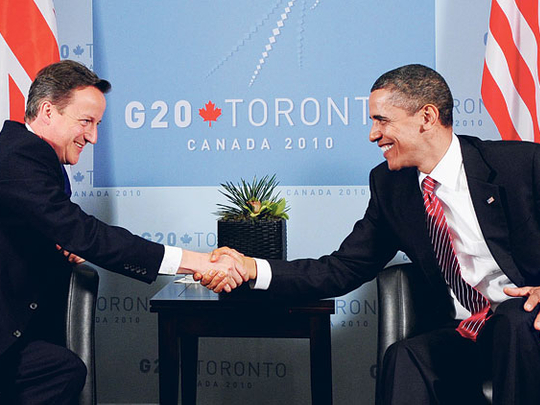
The US and Europe share many values, and they have been close allies since the First World War. This common heritage is based on the common fight for democracy and free enterprise, and an insistence on freedom of choice for the individual.
Of course, both the US and Europe are also building new relationships with this century's emerging world powers such as India and China, and new economic powers like Brazil or South Korea. But these new relationships will not stop the importance of the US-Europe relationship.
The UK media has got into a predictable tizzy about the importance of the supposed UK-US special relationship, fuelled by Obama and Cameron writing a joint article in which they say that "ours is not just a special relationship, it is an essential relationship — for us and for the world".
The two leaders may say so, but the British need to remember that whatever America orders, the UK obeys. Tony Blair found that out the hard way when he became Bush's closest ally during the Iraq invasion, but was completely unable to influence American policy in any way.
Obama is very good at rhetoric laced with values and grand hopes, and Europe loves him for it. And he has the huge advantage in Europe that he is not the hated George W. Bush, so automatically gets a very sympathetic hearing.
But rhetoric alone cannot solve the issues that the world's democracies face in the Middle East. They need policies which lead to actions. They have to develop a reasonable end-game for their military adventure in Libya.
They need to have a common stance on the Arab Spring, which should go beyond a statement that they will "stand with those who want to bring light into dark, support those who seek freedom in place of repression, aid those laying the building blocks of democracy".





